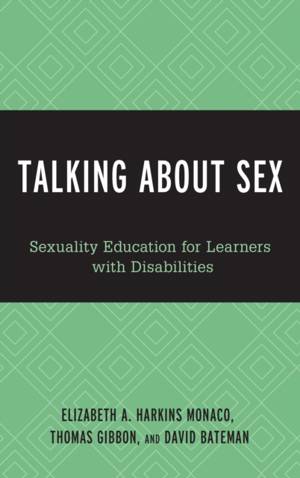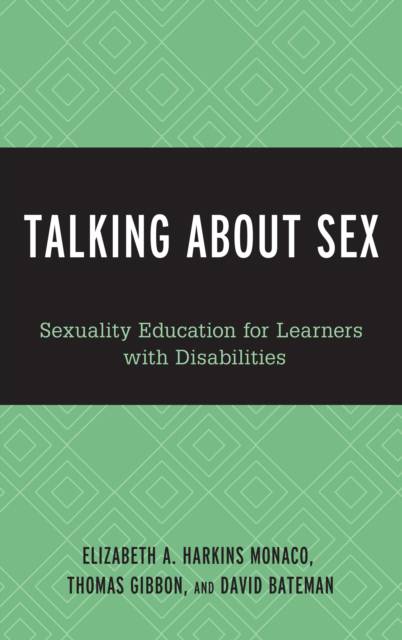
- Afhalen na 1 uur in een winkel met voorraad
- Gratis thuislevering in België vanaf € 30
- Ruim aanbod met 7 miljoen producten
- Afhalen na 1 uur in een winkel met voorraad
- Gratis thuislevering in België vanaf € 30
- Ruim aanbod met 7 miljoen producten
Zoeken
Talking About Sex
Sexuality Education for Learners with Disabilities
Elizabeth A Harkins Monaco, Thomas C Gibbon, David F Bateman
Hardcover | Engels
€ 118,95
+ 237 punten
Uitvoering
Omschrijving
This book will address sexual development of people with autism spectrum disorders as well as other intellectual, developmental, and physical disabilities. It also considers special considerations for group homes and recreational facilities, and concepts of ethics and models of consent (medical, legal, social, and educational.)
Specificaties
Betrokkenen
- Auteur(s):
- Uitgeverij:
Inhoud
- Aantal bladzijden:
- 144
- Taal:
- Engels
Eigenschappen
- Productcode (EAN):
- 9781475839838
- Verschijningsdatum:
- 3/04/2018
- Uitvoering:
- Hardcover
- Formaat:
- Genaaid
- Afmetingen:
- 157 mm x 231 mm
- Gewicht:
- 358 g

Alleen bij Standaard Boekhandel
+ 237 punten op je klantenkaart van Standaard Boekhandel
Beoordelingen
We publiceren alleen reviews die voldoen aan de voorwaarden voor reviews. Bekijk onze voorwaarden voor reviews.











